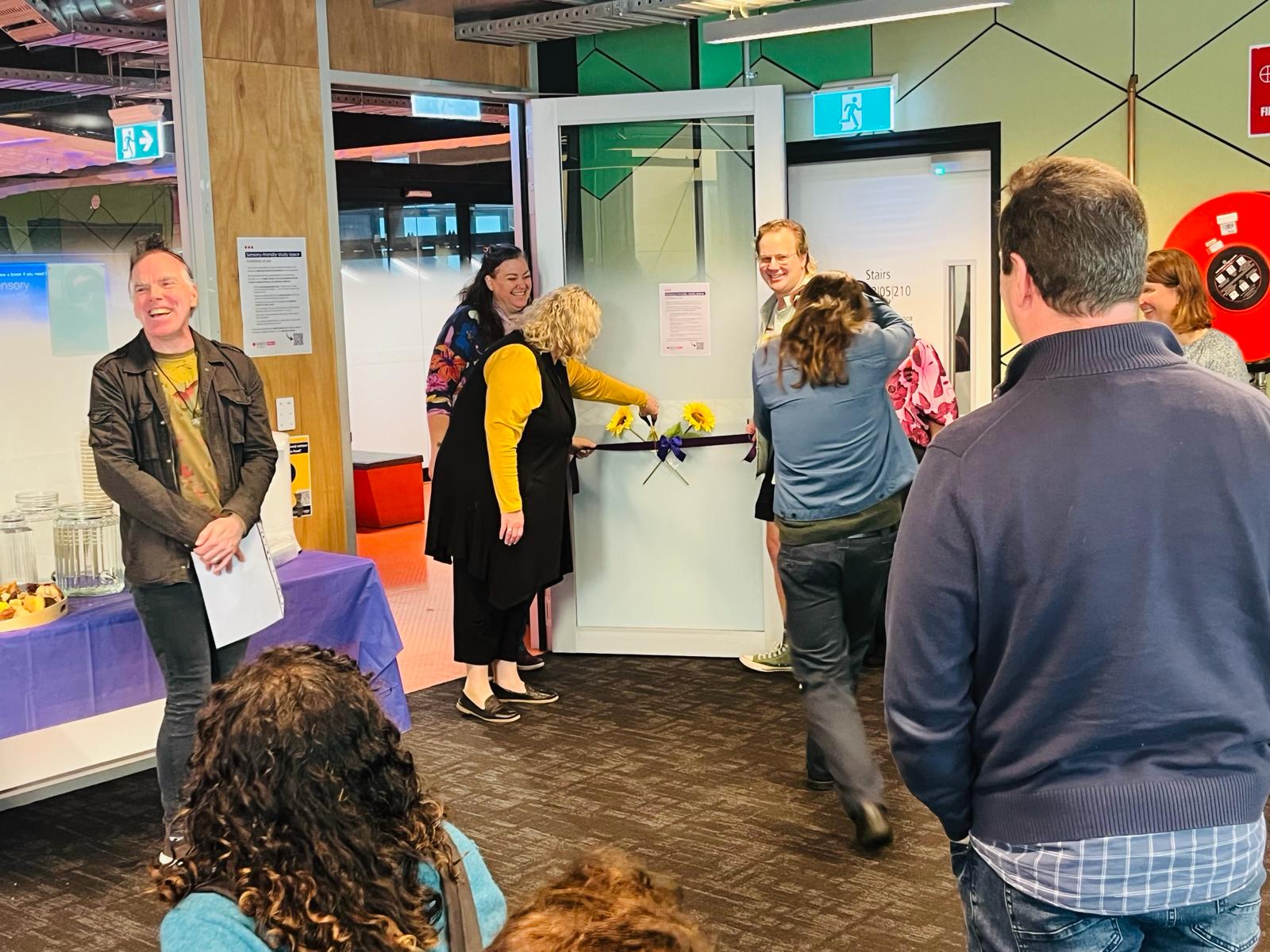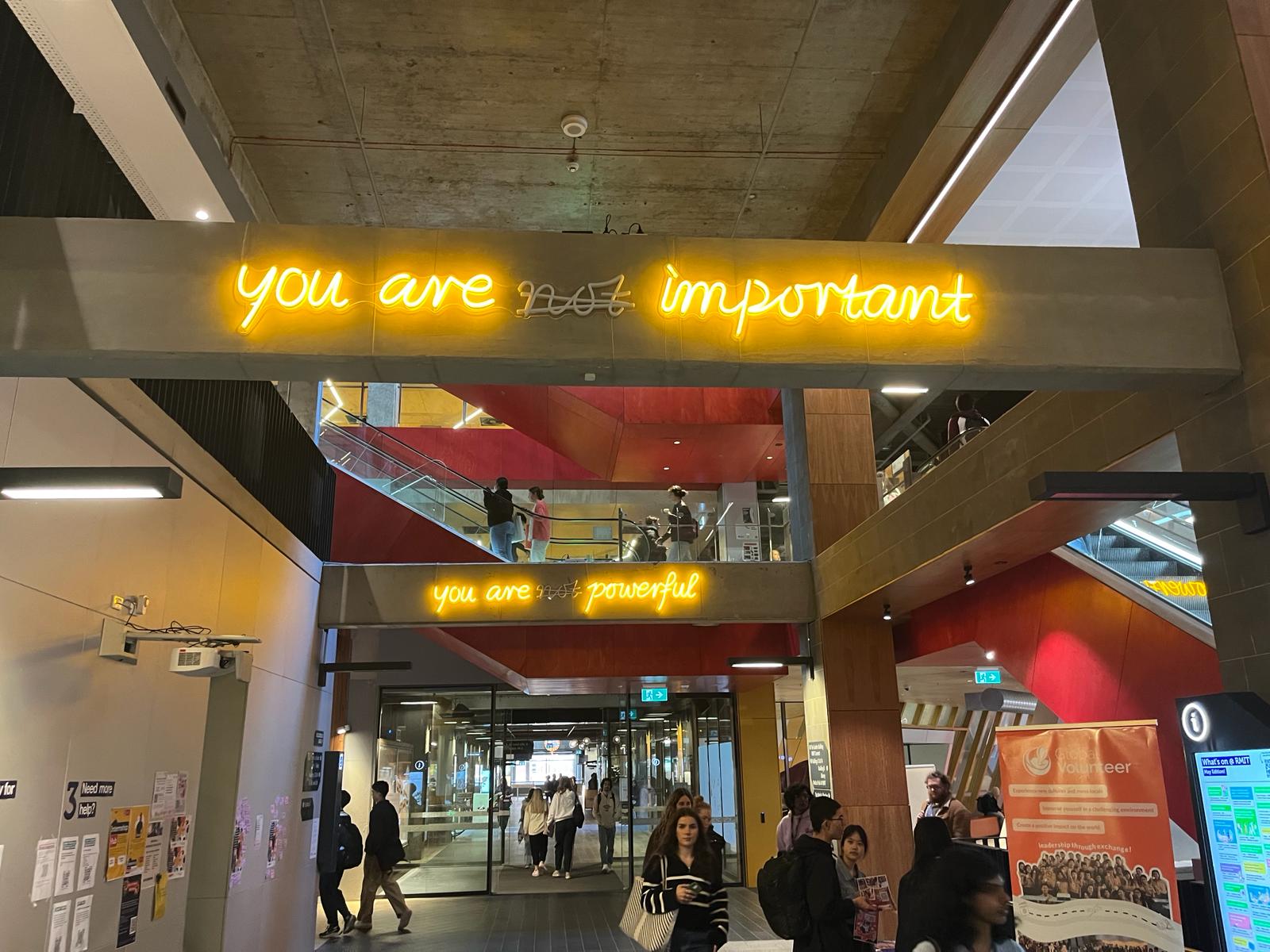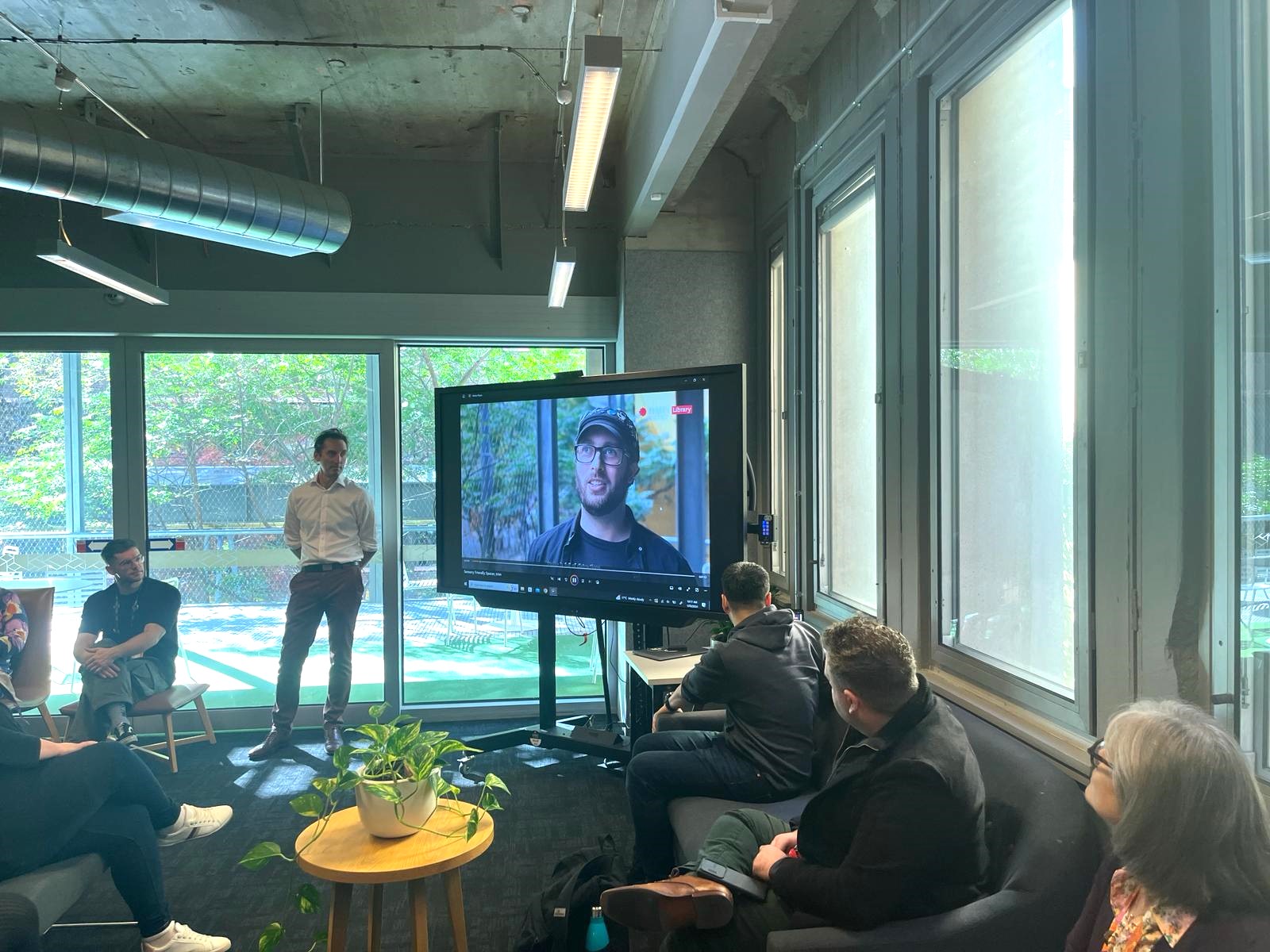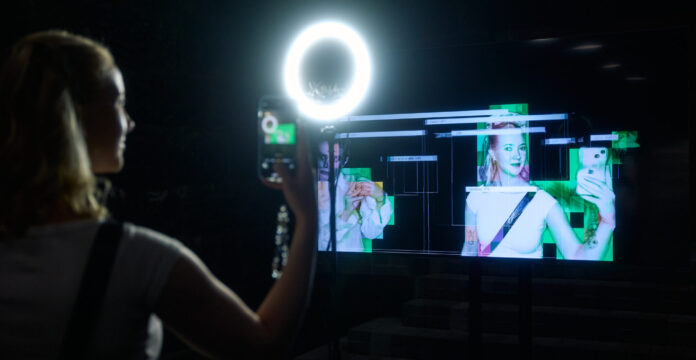
Do you already have neuro-friendly practices and sensory-friendly spaces at your workplace or school? Hopefully, it’s either in place or in the planning stages!
In the same way that neuro-accessibility is considered in tools, it should also be considered in spaces and practices. Spaces designed for sensory sensitivity are crafted to ensure that environments are accessible from a sensory perspective. In these areas, sensory inputs like sight, sound, and smell are fine-tuned so that individuals with neurological differences can fully engage in their activities. The design focuses on regulating visual, auditory, and olfactory stimuli, which may be either too weak or too intense due to individuals’ neurological characteristics.
Globally, numerous prominent institutions such as Stony Brook, Adelphi University, and Minnesota University in the United States have developed facilities specifically to accommodate the needs of neurodivergent students. Likewise, in Australia, universities such as RMIT and La Trobe University are advancing neuro-friendly spaces, practices, and pedagogical methods I personally had the opportunity to explore the work on neurodiversity at RMIT University during my OpenInnoTrain secondment, and I will share my observations in this blog. But let’s first discuss why this topic is increasingly relevant in Finnish education and work environments.

Towards a Well-Educated and Employed Finland – time to consider neurodiversity
The Finnish government program aims to build a strong and caring Finland where people can develop their skills, gain employment, and succeed in the labor market. The program targets an increase in the number of graduates from higher education and improving employment rates. It strives to raise the proportion of highly educated young adults to nearly 50% by 2030 to align with the leading OECD countries. As efforts are made to increase student participation in higher education and ensure their success, with timely graduations and smooth transitions into the workforce, greater attention must be paid to the diversity of learners. International studies suggest that individuals with learning disabilities face barriers in higher education, which may prevent them from seeking degrees and often lead to dropout rates and employment challenges.
Neurological traits like ADHD, autism spectrum traits, and dyslexia influence learning disabilities, posing various challenges in learning and performance. Without adequate support, these can greatly affect an individual’s educational and daily experiences. In Finland, over 8% of boys and nearly 3% of girls are diagnosed with ADHD. International studies suggest that 7-11% of the population exhibit ADHD traits. About 6-7 per 1000 people display autism spectrum traits, and around 7% have a reading disability. Although awareness, improved treatment guidelines, and better diagnostic methods have increased diagnoses, underdiagnosis still presents a significant challenge, and it is likely that a much larger portion of the population has neurological traits than currently recognized. It is therefore important to focus on how neuro-friendliness can be integrated into everyday activities (studying, and working) for supporting individuals’ performance.
Neuro-support in High Schools and Universities 
Both vocational education and general laws in Finland mandate specific support for students with learning disabilities based on needs assessment. However, university and polytechnic laws don’t mention such specific support, but it is stated that institutions should organize studies so that they to allow students to graduate on time and study in a safe environment. Many universities offer support and arrangements for learning disabilities, including extra exam time, pre-supplied lecture materials, oral exam options, and tools to aid reading. Availability and effectiveness of these supports vary between institutions. Generally, students must initiate seeking support, and often, proof of diagnosis is required. Not all students are aware of or pursue available support, leaving many undiagnosed students without assistance. We are still far from having neuro-friendly practices fully integrated into pedagogical work across curriculums.
Neuro-support in the Workplace
Neurological factors can impact employment and job performance. For instance, studies show that young adults with ADHD traits face particular challenges transitioning from education to the workforce. ADHD is associated with higher unemployment rates and lower performance evaluations. Compared to their peers, individuals with ADHD are more likely to be dismissed or quit their jobs due to dissatisfaction. Other studies have shown that people on the autism spectrum also encounter difficulties in finding and maintaining employment, despite their motivation and desire to work.
Fortunately, attitudes have shifted dramatically in recent years thanks to increased awareness and positive discourse around neuro traits. Neurodiversity is now increasingly viewed as a strength in the workplace, where diverse thinking styles are valued, and create competitive advantage. However, neuro-friendly practices have not evolved as quickly. Offices often feature landscapes with uncontrollable noise pollution or lighting. We live in a world governed by strict schedules and immovable deadlines. Moreover, many companies use aptitude and case tests for recruitment and leadership selection that include time-limited reading tasks without neuro-accessibility options, potentially disadvantaging individuals with neurological traits during recruitment and orientation processes.
Australian example
In Australian universities, proactive, low-barrier support has been developed for students. During my researcher exchange, I had the opportunity to observe these supports firsthand at RMIT University. RMIT has been offering neurodivergent study sessions for several years. These sessions don’t require students to prove a diagnosis and are open to all. They aim to create a two-hour environment conducive to independent study, with optional customized support available in areas such as research, academic writing, or learning discussions. Each student sets their own goals and brings their own materials, with Pomodoro technique used under staff guidance to structure the work periods. The environment is made comfortable and distraction-free. There is beautiful, soft background music and fidgets and stress toys for help. The best part is the healthy snacks corner. The atmosphere is friendly, welcoming and encouraging. I feel like I have come home.
The library organizes open study support sessions both onsite and online, where students can drop in without notice or send questions in advance. I also attended the opening of the neuro-friendly space located in the university library, accessible to all students. This space is not only sensory-friendly but also symbolic – a place for undisturbed work. Upon entering, students can switch to work mode, and upon leaving, give themselves permission to take a break. The room features wall-to-wall carpeting to prevent echoes, comfortable sofas and seating, and windows opening onto a large terrace, allowing for semi-outdoor work in Australia’s warm climate. The windows are frosted for privacy from the library, and the walls are painted in beautiful, natural green hues. The whole space is telling a story: “You are important and we care for you.”
RMIT has a dedicated team that includes neuro-experts, peer experts, and student representatives. I interviewed a former neuro-student representative who initiated the sensory room project. He explained that the concept originated from student needs, emphasizing the importance of understanding neurodivergence positively and ensuring these opportunities are open to all, not just those with a diagnosis. He also highlighted that neurodivergent challenges aren’t always apparent; students may develop coping strategies that can lead to burnout or isolation. It is estimated that one in five individuals has neurological traits that affect learning, plus many mental health issues impact concentration and learning ability. And yes, many remain undiagnosed. While specific support measures are crucial, RMIT’s experts remind that neuro-friendliness should be integrated into regular education and workplace orientations.
Toward an inclusive future
In my opinion, the Australian example serves as a good benchmark for Finnish educational institutions and workplaces. A dedicated team focused on developing neuro-friendly spaces and practices is a great starting point. In the future, it’s crucial for workplaces and educational institutions to integrate neuro-friendly practices into their daily operations, offer alternative teaching and assessment methods, and reconsider time-restricted tasks and job duties. Additionally, developing quiet, sensory-friendly spaces benefits everyone, not just those with sensory sensitivities. The rhythm and guidance of work can also play a significant role in teaching, orientation, and support for independent work.
At the University of Vaasa, we support our diverse learners and are continuously striving to make our operations inclusive. We are planning several neuro-friendly activities for next school term!
VME Interaction Design Environment engages in accessibility studies. We also provide a calm and quiet space for you to do studying and research at low-threshold. Come and visit us!
For more information please contact: Joni-Roy Piispanen
Heini’s trip was kindly supported by:






